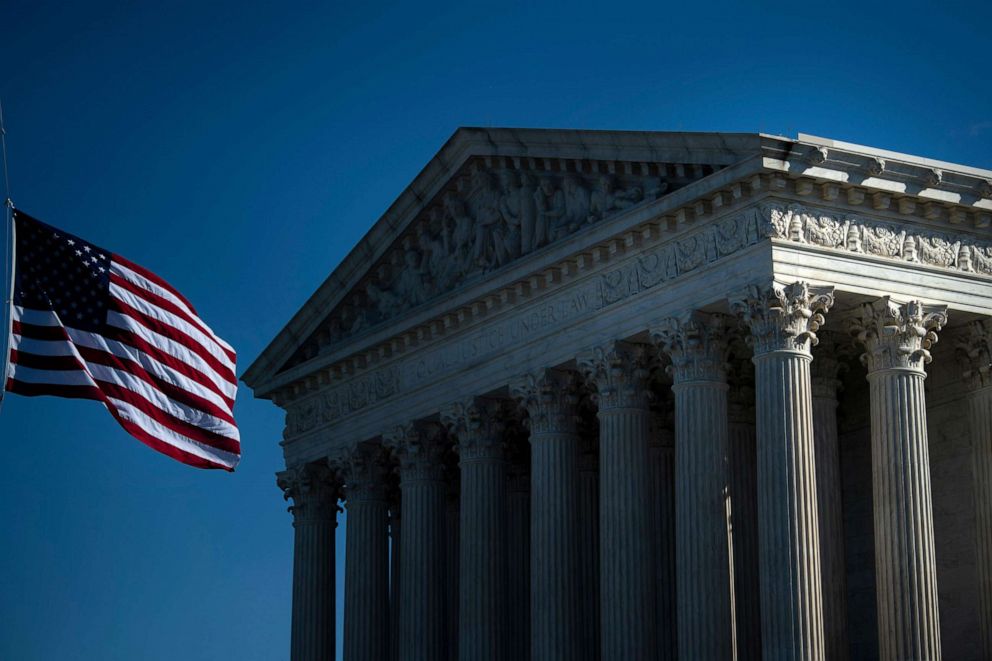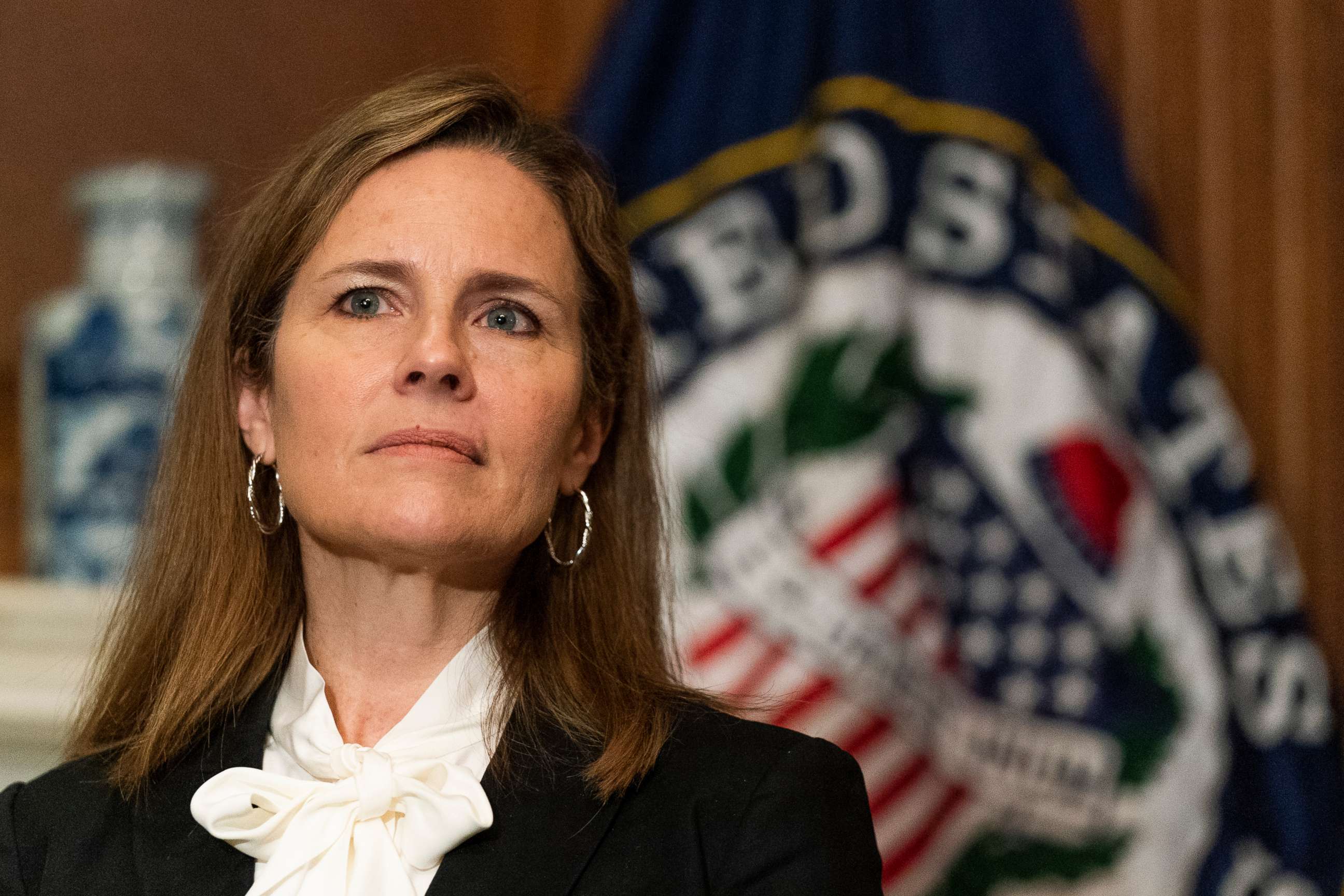Majority says wait on the SCOTUS seat; 6 in 10 favor upholding Roe: POLL
Americans say they prefer to wait to fill the vacancy until next year, 52%-44%.
Six in 10 registered voters say the U.S. Supreme Court should uphold Roe v. Wade as the basis of abortion law in the United States, and a majority in an ABC News/Washington Post poll -- albeit now a narrow one -- says the Senate should delay filling the court's current vacancy.
Sixty-two percent in the national survey say they would want the court to uphold Roe, while 24% would want it overturned; 14% have no opinion. There are broad political, ideological and religious-based divisions on the question.
See PDF for full results, charts and tables.
Separately, 52% say filling the seat opened by the death of Ruth Bader Ginsburg last month should be left to the winner of the presidential election and a Senate vote next year. Forty-four percent instead say the current Senate should vote on Trump's nomination of Amy Coney Barrett to the position.
That's a closer division than the 57%-39% preference for waiting in an ABC/Post poll late last month. That poll was conducted before Trump nominated Barrett and the Senate moved to proceed with her confirmation hearings, scheduled to start Monday.
Opposition to action has dropped among political independents, from 63% to 51%. Eighty-three percent of Democrats favor waiting to fill the seat, while 77% of Republicans in this poll, produced for ABC by Langer Research Associates, support action now.
Similarly, 77% of conservatives want action by the current Senate; 64% of moderates and 87% of liberals say wait. Among registered voters who want Roe upheld, 68% say the Barrett nomination should be set aside; among critics of Roe, 71% want the Senate to proceed.

Roe v. Wade
Some previous ABC/Post polls have characterized the 1973 Roe decision as having "legalized abortion," which it did without restrictions only in the first trimester of pregnancy. Other surveys have characterized Roe other ways, for example, as having established a woman's constitutional right to an abortion, which it also did, as a right to privacy, albeit, again, with restrictions.
This poll, in an experimental approach, did not characterize the ruling beyond saying that abortion law in the United States is based on the Roe v. Wade ruling. Asked what the court should do if the case came before the court again, as noted, 62% said the court should uphold Roe, 24% said the court should overturn it and 14% had no opinion.
Support for Roe is similar to results in previous ABC/Post polls, from 2005 to 2010, asking how new members of the court should vote on the issue; anywhere from 59% to 65%, averaging 62%, said Roe should be upheld. An average of 34% said Roe should be overturned, more than in this poll, and fewer, an average of 5%, had no opinion. Impacts of characterizing Roe merit further study.
Among groups, 66% of women say Roe should be upheld, as do 58% of men. Support for upholding the law peaks among people with postgraduate degrees (83%), Democrats and liberals (both 81%), moderates (75%) and those with no religious preference (also 75%). This drops to lows among conservatives (37%), Republicans (40%), evangelical Protestants (44%) and people with no more than a high school education (51%).

Methodology
This ABC News/Washington Post poll was conducted by landline and cellular telephone Oct. 6 to 9, 2020, in English and Spanish, among a random national sample of 879 registered voters. Results have a margin of sampling error of 3.5 points among registered voters, including design effects. Partisan divisions are 32%-29%-34% among registered voters, Democrats-Republicans-independents.
The survey was produced for ABC News by Langer Research Associates of New York, with sampling and data collection by Abt Associates of Rockville, Maryland. See details on the survey's methodology here.




